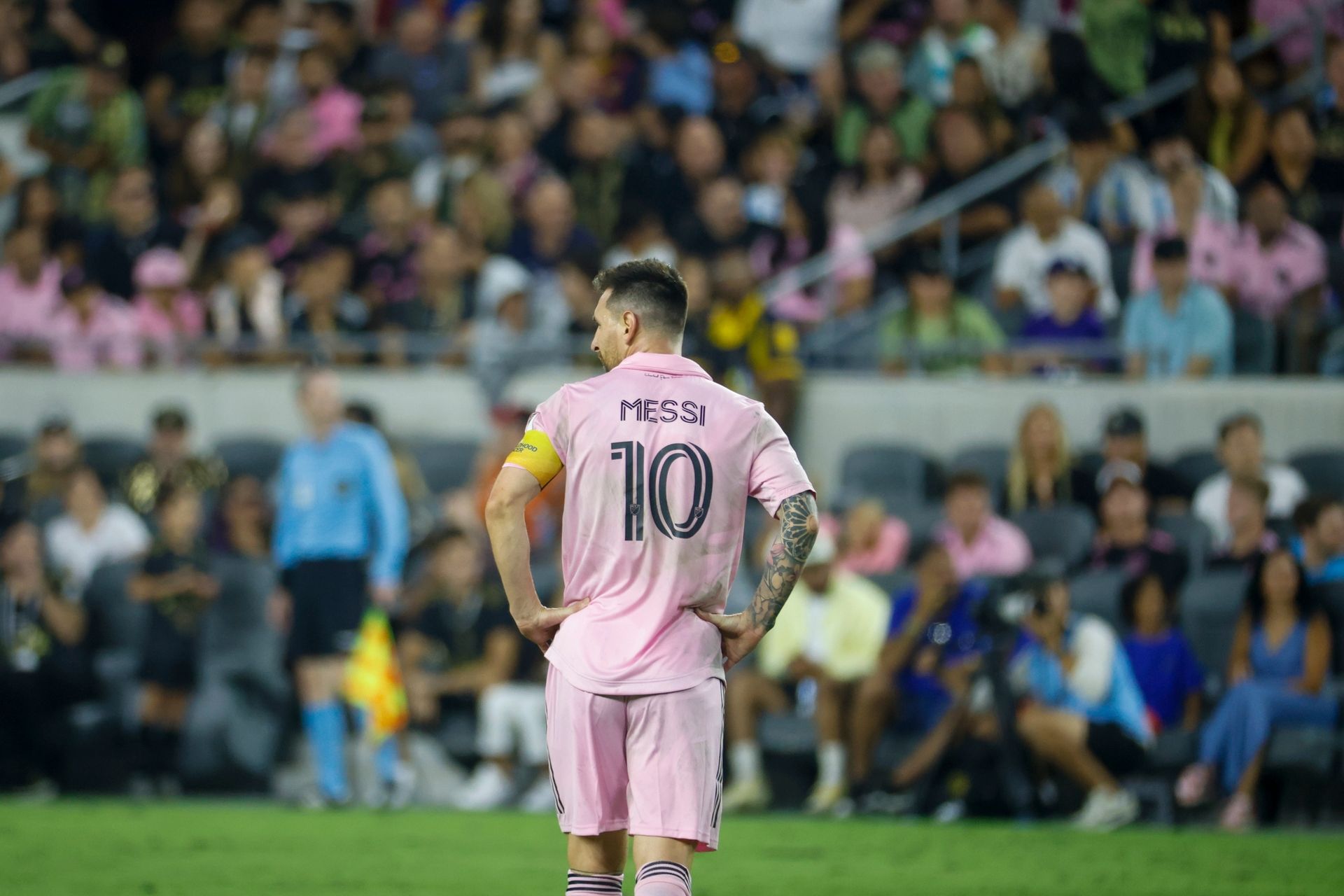- FootBiz
- Posts
- FootBiz newsletter #118: If Messi can't change MLS' nonsensical roster rules, nobody can
FootBiz newsletter #118: If Messi can't change MLS' nonsensical roster rules, nobody can
World football's biggest star has told MLS to take the shackles off. Will they listen?
It’s not something that he’s made a habit of in his frankly sensational footballing career, but last week Lionel Messi actually said something interesting.
A player whose reputation for being timid and softly-spoken was well-earned, particularly in his early years, has without doubt become more confident in his own voice and opinions in recent years. But with life so good, it’s not something he’s chosen to do that frequently. He is a man who picks his moments.
So when Messi does come out and say something interesting it’s usually notable not just for the content of what’s said but also the fact that he’s picked his spot and chosen to come out and say it.
The World Cup winner set up an interview with NBC Nightly News’ Tom Llamas, designed to hit a mainstream American audience in a rare sit-down broadcast interview.
So what was on his mind? Major changes to Major League Soccer, it would seem.
“Well, for starters, every team should have the opportunity to bring in players and sign whoever each team wants,” Messi told Llamas.
“Without limitations or rules for players they want to bring in,” Messi said.

Messi gave a rare sit-down interview to NBC News
Major League Soccer’s bizarre squad-building rules have contributed to making the league an afterthought in the global football landscape, and most people (who aren’t financially incentivised to say that they make sense) tend to think that they make no sense whatsoever. MLS is now watched by fewer people in the US than the Premier League or Liga MX while the Bundesliga and La Liga continue to grow Stateside too. Change is needed.
Messi’s words have put him on collision course for the first time with league commissioner Don Garber, who has repeatedly defended the odd regulations that the league body has imposed on franchises in the name of competitive parity, a term also parroted by the other major leagues.
Your only problem there is that MLS isn’t anything like the NFL, NBA or MLB. College soccer has very little pro-level talent so the draft system doesn’t provide the infusion of talent, and thus the level of parity found in other major leagues.
The reality is that confusing roster rules and spending limits render MLS non-competitive with other leagues who can attract more and better talent with greater ease.
“I don’t think that today all teams in the United States, all clubs, have the power to [buy players freely], and I think that if they were given the freedom, many more big players would come and help the growth of football in the United States,” Messi continued.
Messi convinced former Barcelona teammates Luis Suarez, Jordi Alba and Sergio Busquets to join him in south Florida but it sounds like he’d have brought more friends along if he could. And he believes that names like that arriving on American soil will continue to benefit the sport.
“I think that growing soccer in the United States is possible.
“I think there are still big changes to be made so that teams can continue to grow, but I think there is a very important foundation in place where teams are prepared and want that growth, and I think it’s time to do it.”

Messi is expected to become an Inter Miami co-owner
Taking the shackles off of MLS spending has potential to make the league relevant on a global scale but there would still be some fairly significant questions. Even with all the existing financial rules that benefit owners, only five teams (at the last count) are even profitable. Is there even a will to spend more? Let’s assume there was; letting teams spend more freely would need to be something that would go to a vote (and pass) knowing that many of the league’s more longer-term owners are happy with the status quo and don’t have any great desire to start spending tens of millions on players simply because a player — even if that player is Lionel Messi — said so.
Which is where it could get interesting, of course, and why Messi picking this spot is so notable.
The 38-year-old recently extended his contract and will play for a few more years but there is little doubt he’ll exercise his option to become a co-owner of Inter Miami when he does retire. He’ll immediately become the most influential owner in the league.
Messi is looking at the world’s footballing landscape and thinking about MLS’s situation and Inter Miami’s potential from an ownership viewpoint rather than a player. If Inter Miami is to ever become a real player in the global picture (and remember, we now have an expanded Club World Cup as an arena where they can prove themselves) then there is a pathway for sporting excellence at a club that has such impressive commercial revenues. They just need to be allowed to spend.
In general, while Major League Soccer struggles for eyeballs, you don’t need to be able to squint too hard to project what the league could be if their rules were more inline with Europe and Mexico, which is who they are competing with in reality.
Messi still has some things he wants to win as a player, but it appears he’s got his eyes set on another target for once he’s done on the pitch. He couldn’t make MLS relevant as a player, but as an owner he may have a shot.
Fun fact: 20 of the 30 MLS teams spend less on salaries for their entire squad as Inter Miami spends on Messi’s wage alone
